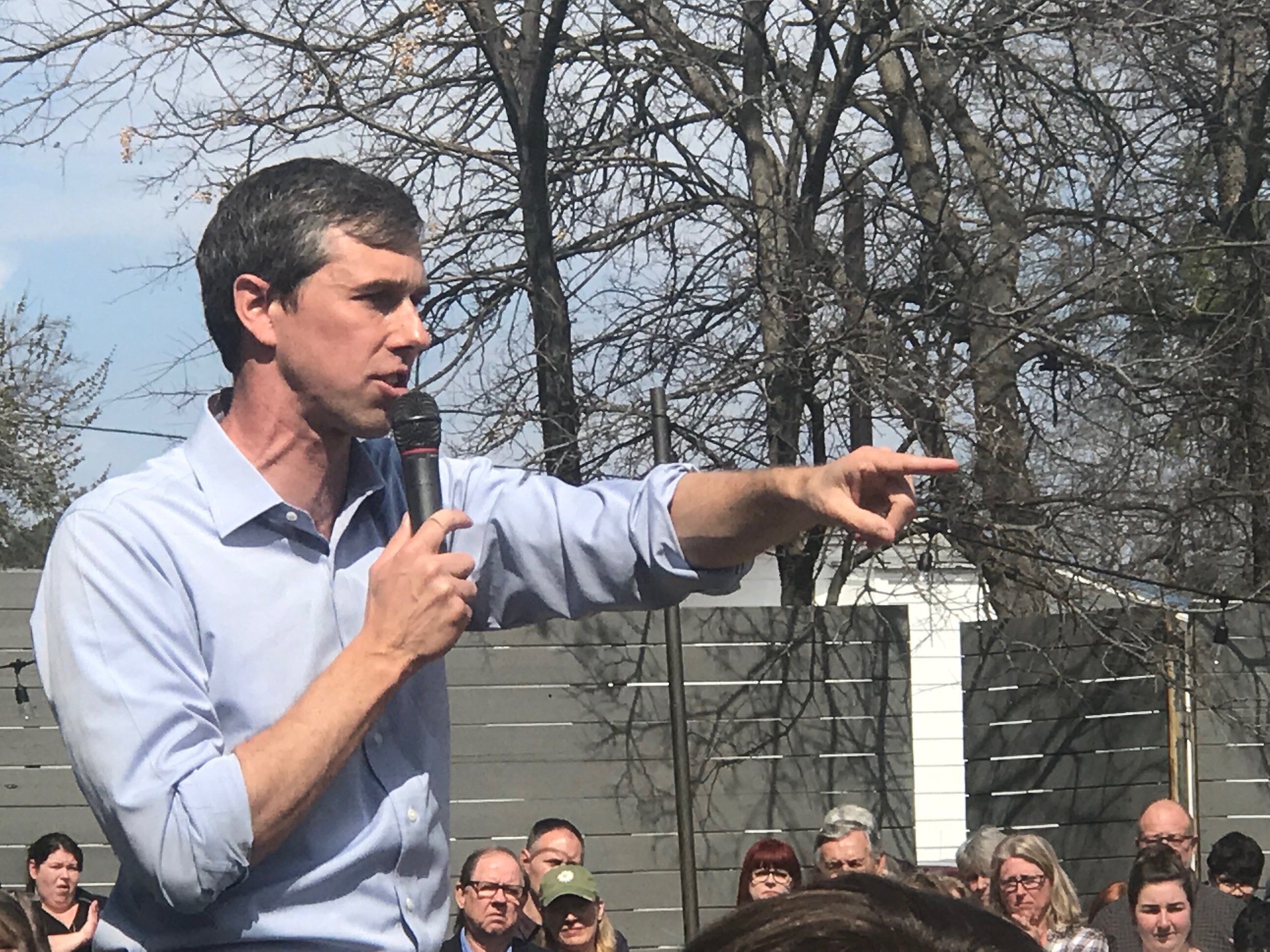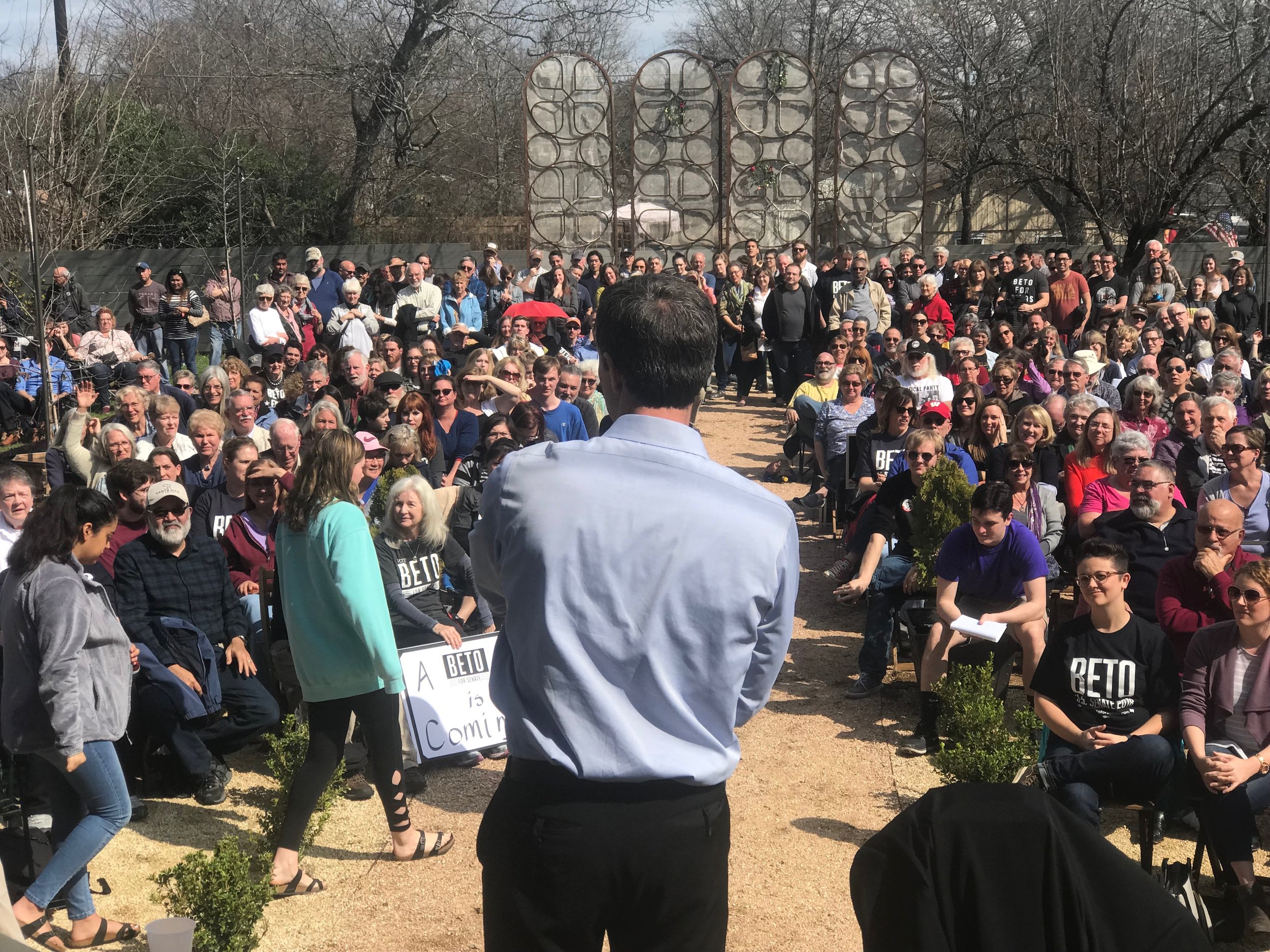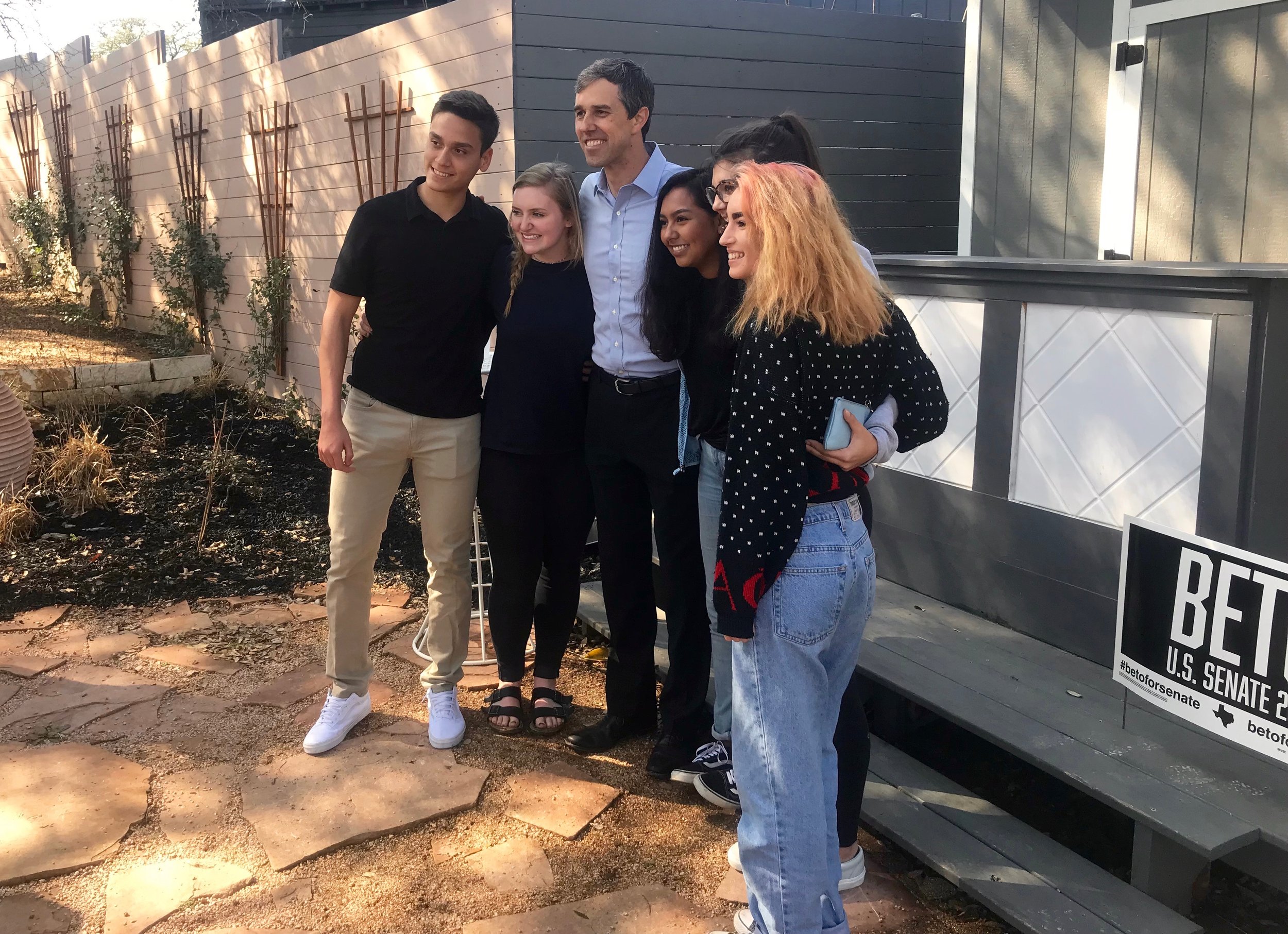Can Beto flip Texas?
By Rick Holmes
March 2, 2018
Georgetown, Texas – Here in Texas, all the buzz has been about Beto.
Beto O’Rourke is the three-term Congressman from El Paso who is waging what is invariably called a longshot campaign to unseat Republican Sen. Ted Cruz.
Longshot, say the political insiders, because a Democrat hasn’t won statewide office in Texas since 1994. Because top Democrats in Washington have too many incumbents to defend and can’t afford to give money to candidates who don’t have a chance. And because Texas is a red state, and the demographic wave isn’t projected to turn it blue until 2024, or 2030.
Video: Beto O'Rourke talks about gun violence
Don’t tell that to the hundreds of voters who crowded into the grounds of a meeting hall in this Austin suburb on a recent Sunday afternoon. Like Democrats all over the country – especially women, especially in the suburbs – they are fired up over guns, racism, women’s rights and Trump, and they are all-in for Beto.
And don’t tell O’Rourke he can’t win. He’s running a frenetic campaign that feels like it’s catching fire. He raised nearly three times as much money as Cruz in the first reporting period of the year and CNN just moved the Texas race from “solid GOP” to “likely GOP.” As for the national Democratic establishment, O’Rourke isn’t listening. He doesn’t take PAC money, and he hasn’t hired outside consultants or pollsters.
O’Rourke looks younger than his 45 years. He’s got the spare frame of a runner – he now incorporates early-morning runs into his campaign team-building. He looks like he could be Bobby Kennedy’s grandson.
The similarities go beyond appearance. Like Bobby, O’Rourke brings a moral sensibility to policy questions. He spoke here of “moral obligation to accept refugees from El Salvador” and other Central American nations because U.S. policies helped create the crime and poverty afflicting their countries.
O’Rourke wasn’t yet born when Robert Francis Kennedy launched his presidential campaign 50 years ago, but he sees a similarity in their campaigns. Kennedy wasn’t listening to polls or consultants either, he told The New York Times, but “seemed to be grounded in the things he found important.”
Then there’s the name. While he’s been called by the Spanish nickname Beto (pronounced “Bet-toe”) since he was a baby, his full name is Robert Francis O’Rourke.
O’Rourke is a 21st century candidate. He’s on all the social media platforms. He live-streams not just his rallies, but his long drives between stops. He’s a former punk rocker who drops f-bombs without blushing.
He’s also old-style. He wants to meet voters face-to-face. O’Rourke has already visited 223 out of state’s 254 counties and promises to hit every county before November. Cruz hasn’t done that, O’Rourke notes, though Cruz has promised to visit every one of Iowa’s 99 counties.
That’s not what most party establishment consultants would recommend. Their playbook calls for micro-targeting demographic groups. They frown on lawn signs because they are too broad-brushed. They put their trust in algorithms, not door-knocking. They put resources into getting out the base in places they’ll win rather than strengthening the grassroots in places where they are far behind.
That kind of thinking is one of many problems with our red state/blue state political shorthand. It intensifies tribalism, implying that individuals must be one or the other. It oversimplifies political geography. Texas is typically deep red on the national maps, but its cities – Houston, Dallas and Austin – vote reliably Democratic, as does most of the poor and heavily Hispanic Rio Grande Valley. Its rural counties vote Republican, but it’s not unanimous even there, which is why O’Rourke visits even the most conservative towns to share his thoughts and listen to theirs.
The Red State/Blue State shorthand implies a permanence to political attitudes that are always changing. It devalues voters whose parties are in the minority. Thanks to the winner-take-all Electoral College, their votes don’t count. A conservative Republican in Massachusetts – or a liberal Democrat in Texas – might as well stay home on Election Day.
In Texas, they often do. The state consistently ranks near the bottom in voter participation. “Texas isn’t a red state or a blue state,” O’Rourke says, “it’s a nonvoting state.”
That’s another problem with the red/blue model: It hides the people who don’t vote. Will a blue wave wash over Texas in November? Watch the turnout in the state’s party primaries March 6.
Don’t be fooled by metaphors. People aren’t born red or blue; they make up their minds as they go along and are subject to persuasion. Political waves, of whatever color, aren’t natural events – candidates don’t ride them, they make them.
The insiders at CNN still rank the Senate race “likely GOP,” but the election is still eight months away. We’ll see what kind of waves O’Rourke and his Texas Democrats can make.
Rick Holmes can be reached at rick@rickholmes.net. You can follow his journey at www.rickholmes.net. Like him on Facebook at Holmes & Co, on follow him on Twitter @HolmesAndCo.


